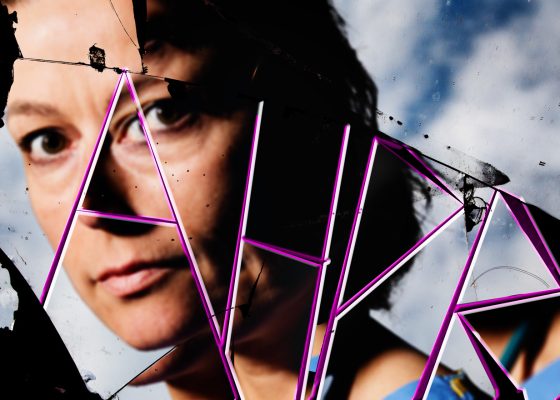There is so much to learn from the horror of Britain’s worst child killer’s actions that it is hard to know where to begin.
I’ll say it from the get-go – if we believe that there is nothing the Australian hospital and medical regulatory systems can learn from the Lucy Letby case, then we are naïve at best and negligent at worst.
For those living under a rock, British nurse Letby has just been sent to prison for the rest of her life for the murder of seven babies under her care in the neonatal ward of the Countess of Chester Hospital in the UK. The jury couldn’t make a decision about her attempted murder of six others. She had a particular penchant for attacking twins. Those who survived have been left with life-changing disabilities as a result.
Horrifying.
There are layers to the horror, of course. Peeling back the topmost layer – the ordeal for the babies and families – there lies a morass of terrible decisions, broken public trust, and arrogance.
Because hospital authorities were warned about Letby.
In June of 2015 consultant paediatrician Dr Stephen Brearey was the first person to alert hospital authorities to Letby’s presence at the unusual deaths and collapses of babies. Dr Brearey and his colleagues raised concerns multiple times before Letby was finally removed from the neonatal unit in July 2016.
It took another 10 months for police to be contacted.
According to the Guardian, Dr Brearey said hospital executives “should have contacted the police in February 2016” when he escalated concerns about Letby and asked for an urgent meeting.
“You could argue all the events from May 2016 onwards were avoidable if they had acted appropriately,” Dr Brearey said of the executives.
“If they had responded appropriately to the urgent meeting request in February 2016, then the same would be true from February 2016.”
Dr Brearey said “things would have been different from October 2015” if the hospital had taken a “proactive” approach to the concerns. Senior doctors, he said, were bullied and intimidated, and he claimed there was an “anti-doctor agenda” among the hospital’s senior leaders, most of whom came from a nursing background.
But it gets worse.
Two reviews were commissioned by hospital executives. Neither inquiry was tasked with “forensically examining potential causes of the rise in deaths or the suspected association with Letby”.
Dr Brearey and his colleagues were forced to apologise to Letby and enter mediation with her. Can you imagine?
And worse again.
Parents of murdered and injured babies were “fobbed off” by the hospital’s medical director Ian Harvey when they raised concerns. Dr Harvey retired as medical director weeks after Letby’s arrest in July 2018 and now lives in the south of France. He has since apologised for “not communicating clearly enough”.
Dr Brearey and his colleagues made a formal complaint to the General Medical Council about Dr Harvey in 2018. The GMC didn’t bother to speak to the three other consultants who submitted the complaint before closing the investigation. The GMC cleared him with no case to answer in May 2022.
The pressure’s on in the UK to set up a statutory inquiry with powers to compel witnesses to appear – Letby, by the way, didn’t bother to show up to her sentencing hearing where she would have been forced to face the parents of the babies she murdered.
According to the BBC, an inquiry has been set up but so far there are no powers to compel.
“Health minister Helen Whately said the decision not to grant statutory powers meant the inquiry could be conducted ‘at pace’,” said the Beeb.
“However, Education Secretary Gillian Keegan has since said the option ‘is on the table’ and ‘can be discussed’. Slater and Gordon, the law firm representing two of the families of babies attacked by Letby, said a non-statutory inquiry was ‘not good enough’.”
What does it mean for nurses?
“People keep referring to Letby as ‘the nurse’ but she isn’t a nurse now,” said Dr Amanda Lee, a former neonatal nurse and now a senior lecturer in nursing at Manchester Metropolitan University, in the Guardian.
“That is really grating on me as a professional nurse. My professional status means that I have to uphold trust with the public; that I do no harm. Letby was an outlier but it has happened on people’s watch,” she said.
“Everyone around her will be questioning, could I, should I have done anything different.”
What can we learn?
The lessons are obvious, frankly – at the unit level, the hospital level, the regulatory level, the complaints process, the whistleblowing protections or lack of, the governmental level, the statutory level. There isn’t a part of the process that doesn’t contain salutary messages.
The question is, do we believe that such a situation could happen here?
Yes, Letby was an outlier, a likely psychopath. The danger is in thinking she was unique in the world. The danger is in thinking we have all the systems in place to prevent such a person from being able to get close to vulnerable patients. The danger is in thinking we have all the systems in place to act quickly and appropriately when that first level of safeguards fails.
The danger is in thinking everyone involved will act in the interests of the patient before their own self-interest.
It will be interesting to see the reactions of AHPRA, the hospitals, the professional bodies, as well as those who educate and assess medical practitioners of all flavours in this country.
It would be an opportunity wasted if this case does not result in some self-reflection, even on the other side of the planet.
Do you have a story tip for us, or a topic you would like to see us cover? Contact the editor at editor@healthservicesdaily.com.au




